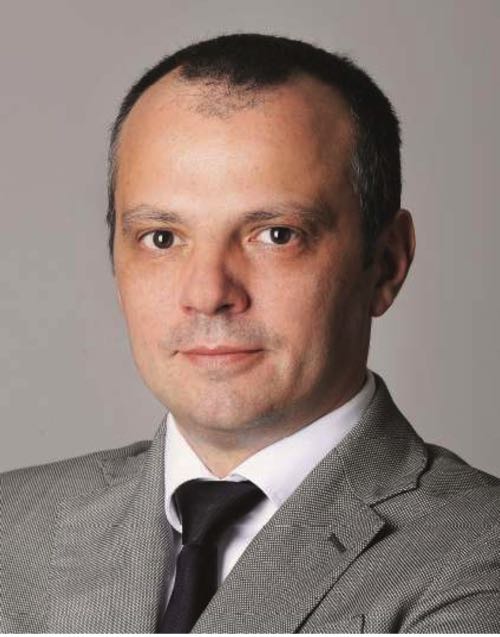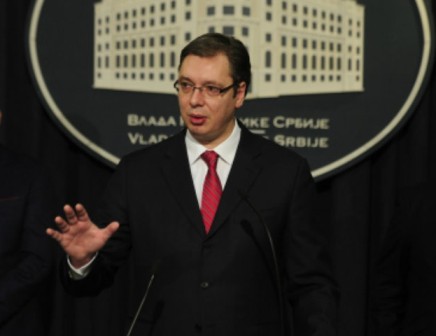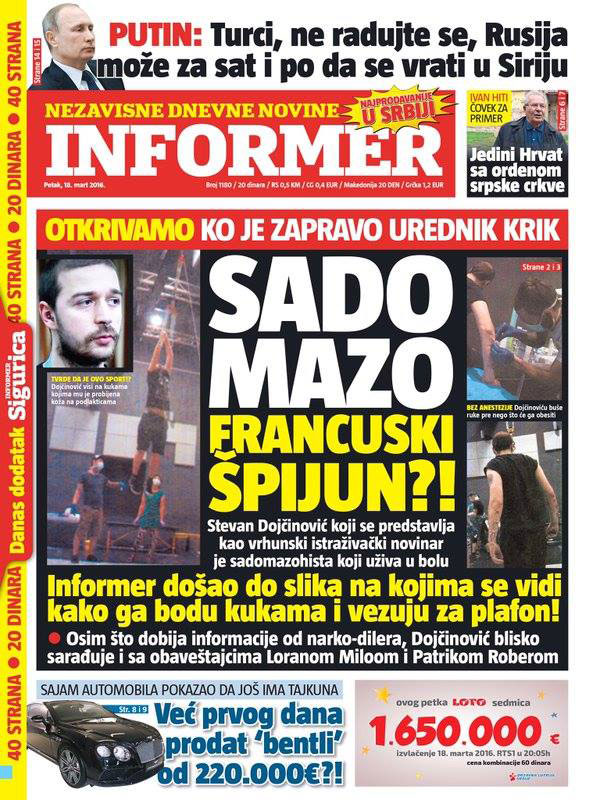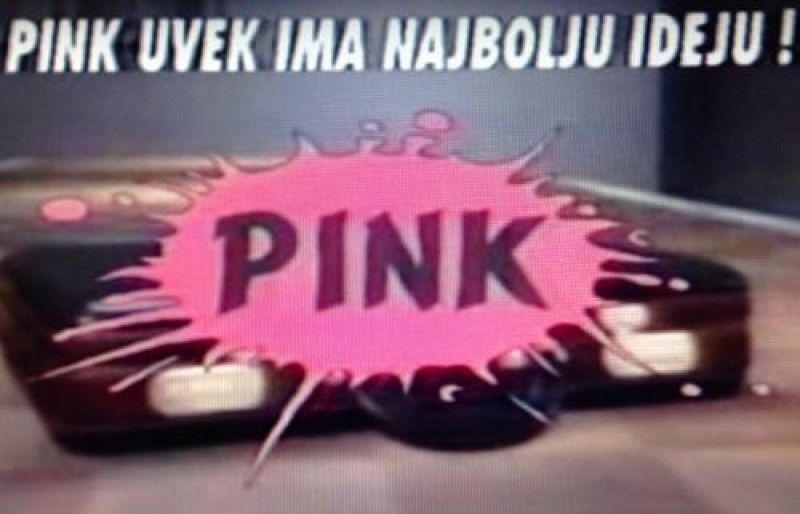Recently in the midst of a barrage of revelations in other media implying wrongdoing by some of Serbia's top officials, the channel made a departure from its typical entertainment content to air conspiracy theories about a supposed coup attempt.
Documents published by CINS now show that the company that owns the channel, Pink International Company, received loans and guarantees worth at least EU€ 3.9 million (US$ 4.36 million) from a state-formed company created in 2005 with the aim of helping Serbian exporters – the Serbian Export Credit and Insurance Agency (AOFI).
While the public was unaware of these deals between Pink and the tax-funded state agency, the relationship between the network and the government does not come as a surprise to many Serbian journalists.
A Generous Government Agency
After a member of Serbia's Anti-Corruption Council, Miroslava Milenovic, told N1 Television that Pink received a loan worth millions from AOFI in late November last year, CINS journalists began to check that statement.
On Dec. 3, reporters sent an information request to AOFI, asking for documents regarding this loan and all other financial activities between AOFI and it's clients. They received an answer, but not the requested data.
The journalists complained to Serbia's Commissioner for Public Information, Rodoljub Sabic, who then asked AOFI about the unanswered request.
AOFI then answered to the complaint, and Sabic and the journalists were told that “business arrangements with the 'Pink International Company' represent a business secret and cannot be submitted to third parties”.
The Commissioner, however, decided in favor of the journalists, saying the requested information is of public interest. He meanwhile fined AOFI twice, the fines totaling 200,000 Serbian Dinars (US$ 1,800). On May 16, Sabic released a statement saying he sent a request to the government to enforce his decision – to coerce AOFI to release the requested data.
Sabic said that the right to business secrecy cannot be called upon when expenses paid from public money are involved, CINS wrote.
As they waited nearly six months for the requested information, CINS journalists looked into Serbia's business registry, and obtained certain documents that prove that AOFI provided financial aid to Pink on at least two occasions, totaling EU€ 3.9 million. Here’s what they found.
In August 2014, AOFI signed a contract with Pink International, which states that, at Pink's behest, AOFI issued a guarantee worth EU€ 2.5 million (US$ 2.8 million) to AIK bank.
The contract, dated Aug. 8, 2014, says that AOFI holds a lien on the financial claims Pink has towards two public telecommunications companies in neighboring countries – BH Telecom in Bosnia and Herzegovina, and MTEL in Montenegro.
And four months later, in December, AOFI gave Pink International a loan of EU€ 1.4 million (US$ 1.56 million) to finance new contracts that Pink  Zeljko Mitrovic appearing on televisionsigned with the two Telecoms. This contract was signed by AOFI director Dejan Vukotic and Pink owner, Zeljko Mitrovic, on Dec. 10, 2014. Mitrovic offered promissory notes on other companies he owns as collateral, among other guarantees.
Zeljko Mitrovic appearing on televisionsigned with the two Telecoms. This contract was signed by AOFI director Dejan Vukotic and Pink owner, Zeljko Mitrovic, on Dec. 10, 2014. Mitrovic offered promissory notes on other companies he owns as collateral, among other guarantees.
Considering the aim of AOFI's activities, which is helping Serbia’s exporters, supporting one of the country’s most popular regional TV channels could be explained – but not the fact that during 2014, Pink International was named among the biggest tax debtors by tax authorities.
According to AOFI's rules, in order to receive any sort of aid from the agency, a company needs to provide AOFI with a document from the tax authority, stating that the company has paid all relevant taxes.
According to data from tax authorities from Dec. 31 that year, Pink had a total debt of more than EU€ 3.5 million (US$ 3.92 million), CINS reports. Another document published by CINS also shows that three days before AOFI's guarantee was issued, Pink still owed at least EU€ 1.5 million (US$ 1.68 million) in taxes. A decision to extend Pink's deadline to pay these taxes, which would make Pink eligible for the aid, was not in place at that time. According to a report by the Anti-Corruption Council from Dec.18 of the same year, Pink was late in paying its tax debt.
Neither AOFI nor Pink have been willing to provide answers to a set of questions that CINS sent them. Some of those questions are: On what basis did Pink meet the conditions to receive a loan and a guarantee, if the company was one of the biggest tax debtors at that time? What is the subject of the contract in which AOFI approved a loan to Pink, and why has AOFI never submitted the requested information, even after the decision by the Commissioner for Public Information?
After the local newspaper “Danas” published the revelations by CINS, however, Mitrovic responded to the findings with a letter.
The letter stated that Pink does not owe anything to any bank or other financial institution at this time. Mitrovic said that Pink's loan involving AOFI, worth EU€ 3,9 million, was paid off in total with all interest on March 23 this year.
Mitrovic emphasized that the group of firms composing the Pink International Company – TV Pink, Air Pink and City Records, made a profit of EU€ 71 million (US$ 79.5 million) in 2015, with EU€ 30 million (US$ 33.6 million) being the export of their own product. This makes Pink, according to Mitrovic, one of Serbia's most important exporters.
However, according to an article Danas published on Wednesday, their journalists checked the data in the chamber of commerce, and found that Pink is not among the 100 biggest Serbian exporters.
In his letter, Mitrovic also wrote that the Pink group paid more than EU€ 10 million (US$ 11.2 million) in taxes and employee contributions in the past year.
As CINS pointed out following the letter's publication, Mitrovic never denied any of the facts in the article, nor did he give an answer to any of the questions CINS pointed out.
“With this, Mr. Mitrovic still does not explain how he received a loan and guarantee from AOFI although data shows that he had a tax debt at the time. Other than that, it is still unclear what business activities the Pink International Company received help from AOFI for”.
CINS pointed out that Mitrovic was given an opportunity to respond to the article when its reporters called and requested an interview with him almost two weeks prior to publication, and he did not respond until after publication. Their invitation for an interview with Mr. Mitrovic is still open, they wrote.
Prime-time coup for the masses
Throughout the Balkans, the public was shaken when, in early November last year, Pink took a break from its normal diet of Latin telenovelas, sitcoms, talk shows, singing contests and reality shows, and aired a TV special named “Rusenje Vucica (Overthrowing Vucic)” - where a number of government officials, media personalities and other prominent figures claimed that Western power centers and a number of individuals were trying to mount a coup.
 Aleksandar Rodic (Photo Courtesy of Adria Media Group)At the time, several government officials found themselves on the defensive regarding investigative stories by other media, including the OCCRP partner the Serbian Crime and Corruption Reporting Network (KRIK), implying their involvement in a range of alleged criminal activities. These stories took a backseat while Pink and other government-friendly media were revealing an alleged conspiracy to destabilize Serbia.
Aleksandar Rodic (Photo Courtesy of Adria Media Group)At the time, several government officials found themselves on the defensive regarding investigative stories by other media, including the OCCRP partner the Serbian Crime and Corruption Reporting Network (KRIK), implying their involvement in a range of alleged criminal activities. These stories took a backseat while Pink and other government-friendly media were revealing an alleged conspiracy to destabilize Serbia.
The show was the culmination of what some media observers call the “war of tabloids”, as pro- and anti-government media battled to present their respective versions of reality.
One of the main targets of the special was the owner of one of Serbia's most circulated newspapers, Kurir. Kurir owner Aleksandar Rodic was accused of directly aiming to tarnish the reputation of Prime Minister Aleksandar Vucic in order to overthrow him.
According to Rodic, the TV special was nothing more than a vehicle for coup allegations posed by Informer, a government-friendly tabloid. Informer's chief editor and owner, Dragan Vucicevic, was also a guest of the TV special.
The show also hosted a controversial businessman, Miroslav Bogicevic, who had recently been released from jail for financial crimes – and who now was accusing Rodic of racketeering.
The main goal of the TV special was, according to an interview Rodic gave to OCCRP in November 2015, to gather support for his arrest.
To The Government's Defense!
Days before the TV special, Informer began a stream of attacks on Rodic for stories Kurir had published on corruption allegations against the mayor of Belgrade, Sinisa Mali, in late October. The allegations stem from findings by investigative journalists from KRIK.
It was unusual for Kurir to publish a story criticizing government officials, especially someone as close to the Prime Minister as was Mali. Kurir had been known for backing the government before.
Informer initiated a smear campaign against Rodic instantly, and it would soon prompt him to answer to the allegations in a public letter named “Forgive me Serbia”.
Rodic told OCCRP that he published the letter because he decided the time had come to lay all of his cards on the table and simply confess that he had been involved in the government propaganda machine that would “improve reality“ in the eyes of the Serbian public.
The letter stated that he, Informer's owner Vucicevic, and the owner of the Pink TV channel, Zeljko Mitrovic, had been involved in the election campaign of Aleksandar Vucic.
“We were convinced that this was good for Serbia,“ the letter reads.
The letter said that owners and editors in Serbia's media houses were afraid for their jobs and future, but it named Mitrovic specifically in this context. It said the media mogul is coerced to do the government’s bidding due to various reasons.
Pink's four-hour TV special aired within a day after this letter was published.
More than just friends
In his interview with OCCRP taken November 14 last year Rodic named several reasons why he thought that Mitrovic does the government’s bidding. One of them is the ongoing trial against Mitrovic's son, Aleksandar, who in July 2013 killed a girl in a hit-and–run. Another reason he named is the mysterious death of Mitrovic's mistress, who died of a drug overdose in a hotel room that had been booked by Mitrovic's company that night.
The government’s control over Pink was also confirmed earlier by a former information chief of the Serbian government, Vladimir "Beba" Popovic, in a talk show in June 2014.
Even Vucic himself told TV1 in an interview, “There is only one privately owned TV network which supports the work of the government. That is Pink, and they have every right to do so,” writes local media observing portal Cenzolovka.  Aleksandar Vucic (Photo: KRIK)
Aleksandar Vucic (Photo: KRIK)
CINS newest findings, however, prove that the relationship between Pink and the government is based on more than speculations of blackmail or sympathy between the two parties – there is a clear financial connection.
According to earlier CINS stories, Pink was very generous to the ruling Serbian Progressive Party (SNS) during their election campaigns.
As many Serbian media houses provide discounts to political parties who wish to advertise their campaigns, it does not come as a surprise that Pink did the same.
Their discount for to the SNS for airing their campaign during local elections in 2013, however, reached up to 92 percent.
When Watchdogs Face Guard Dogs
According to a number of local investigative journalists, independent media in Serbia is strongly repressed.
However, as CINS findings show, this is not to say that the current Serbian government does not provide support to certain media organizations.
 Cover of Informer from March 18, targeting Stevan Dojcinovic as a "Sado-mazo french spy" Apart from several journalists accusing state services of wiretapping, independent media organizations and their journalists frequently find themselves targets of harsh smear campaigns by private, government-friendly media.
Cover of Informer from March 18, targeting Stevan Dojcinovic as a "Sado-mazo french spy" Apart from several journalists accusing state services of wiretapping, independent media organizations and their journalists frequently find themselves targets of harsh smear campaigns by private, government-friendly media.
Several independent media houses, such as BIRN, KRIK and CINS, have been on the receiving end of these smear campaigns, most notably by Informer, drawing attention from the Index on Censorship.
A recent example of this was the vicious attack against KRIK chief editor Stevan Dojcinovic. Through Informer, Vucicevic, who had previously confirmed his friendly relations with Prime Minister Vucic, spearheaded a smear campaign against Dojcinovic, accusing him and his colleagues of cooperating with foreign secret services, launching false scandals, and being a spy organization that aims to weaken the government.
As before, Vucicevic went on to reiterate these allegations in an interview on Television Pink in mid-March. While Informer’s attacks on KRIK were nothing new, this time Vucicevic revealed details of a story on real estate assets of the Prime Minister that KRIK was still working on. The paper also published the names of multiple people KRIK had spoken to, including potential sources.
But, Vucicevic's interview on Pink would provide a burning question which remains unanswered to this day – how did he know what KRIK would publish in advance?
Whatever the answer might be, the level of sympathy between the Serbian government and some local media organizations - which are quick to attack anyone critical of the government – is reminiscent of the media situation in several other regional countries, like Macedonia, Russia or Hungary.
“The prime minister has taken over most media in Serbia, especially national TV networks, but also local ones," CINS director Branko Cecen told the Index on Censorship. “His small army of social media commentators is terrorizing the internet. It is quite bleak and frustrating.”






